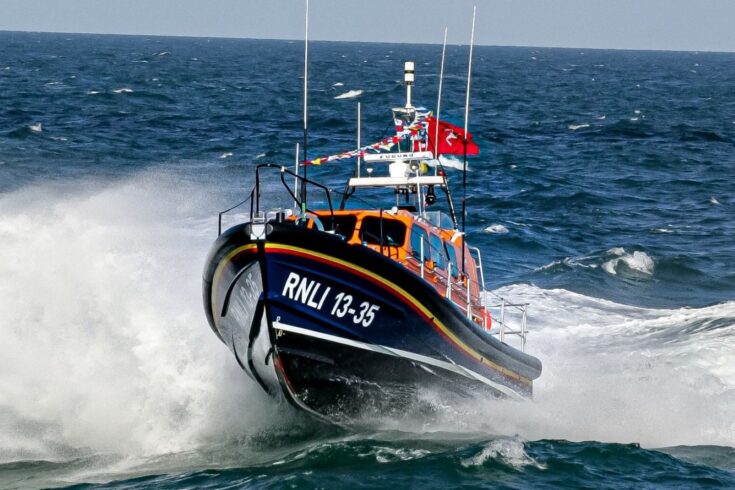A new project to explore the use of green fuels in high-performance rescue vessels wins a funding boost of £250,000.
Engineering specialists, MAHLE Powertrain, are teaming up with the Royal National Lifeboat Institution (RNLI) to explore the best green fuel options for the charity’s search and rescue vessels, using Hydrogen Jet Ignition (HyJet).
Currently, fuel for RNLI’s lifeboats, rescue watercraft and logistics vehicles accounts for 57% of the charity’s energy use.
These vessels need to operate in often challenging weather conditions for several hours at a time which makes the use of batteries impractical as an alternative low-carbon power source.
MAHLE Jet Ignition® technology
MAHLE Powertrain has developed an advanced internal combustion engine where fuel is ignited in a pre-chamber.
This MAHLE Jet Ignition® technology (MJI) ensures clean and efficient combustion throughout the main chamber when using hydrogen or other sustainable fuels.
MJI is a cost-effective solution that can be retrofitted to existing diesel-powered vessels.
It produces few or no pollutants such as nitrogen oxides, something that wouldn’t be possible with a traditional ignition system yet can provide the same efficiency as a diesel engine.
Collaborating on search and rescue vehicles
The project is being led by MAHLE Powertrain, working with green transport specialists Clean Air Power and the Powertrain Research Centre at University of Nottingham.
This collaboration with the RNLI will initially target search and rescue vessels using data collected from RNLI’s vessels during real-life operations to determine the best approach.
Victoria Limbrick, Carbon and Energy Manager, RNLI, said:
The RNLI has committed to eliminating or reducing impacts on the environment, and to become a low-carbon, climate-resilient organisation.
The HyJet project offers an exciting opportunity to investigate and learn about potential solutions that could help meet our challenging sustainability targets and to fulfil our ambition to move away from fossil fuels.
In the first part of the project, the team will compare the effectiveness of fuels. Including green hydrogen, ammonia and methanol, and consider options for the on-board fuel storage and quick refuelling needed.
The next stage will be to test the MJI system with these fuels to generate engine data that can feed into broader computer simulation models.
About the project
The HyJet project is part of the Clean Maritime Demonstration Competition round two (CMDC2), part of the UK Shipping Office for Reducing Emission’s (UK SHORE), launched in May 2022.
CMDC is funded by the Department for Transport and delivered in partnership with Innovate UK.
As part of CMDC2, over £14 million was allocated to 31 projects supported by 121 organisations from across the UK. The funding was allocated to deliver feasibility studies and collaborative research and development projects in clean maritime solutions.
MAHLE Powertrain YouTube video.
The clean maritime video playlist is available on Innovate UK’s YouTube channel.
Last updated: 28 March 2023

